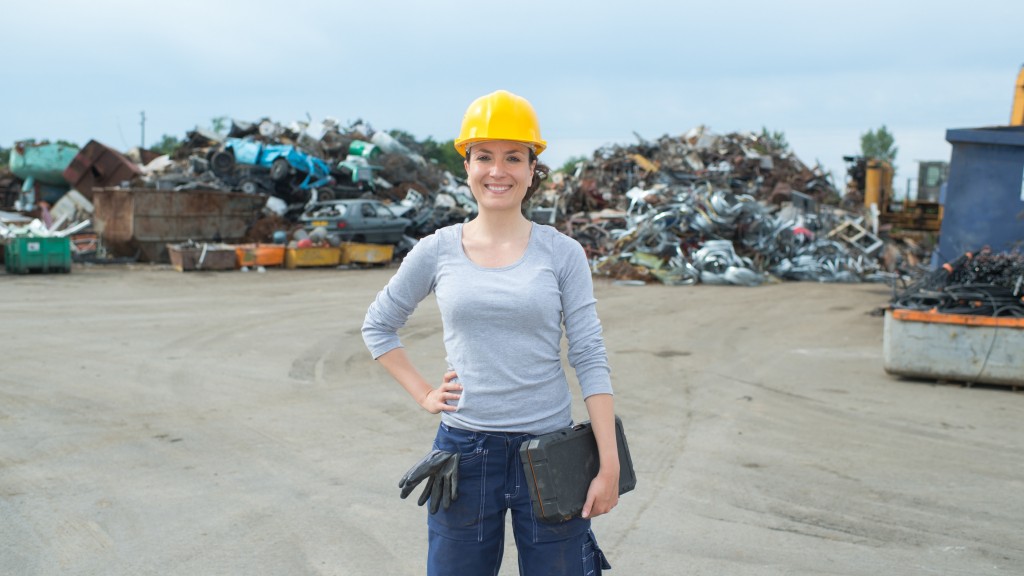The Environmental Goods Agreement
Why recyclers and recycling equipment manufacturers should care
Many recyclers and recycling equipment manufacturers are surprised to learn that the World Trade Organization is working on an agreement that could abolish tariffs for their products throughout the world.
On 24 January 2014 at the World Economic Forum in Davos, the EU, together with 13 other World Trade Organization members, pledged to launch negotiations to liberalize global trade in environmental goods.
This initiative builds on the momentum created by the process in APEC (Asia Pacific Economic Cooperation), in particular the political commitment by APEC members in September 2012 to reduce applied tariffs to 5 percent or less on 54 environmental products by 2015.
The initial countries involved include Australia, Canada, China, Costa Rica, Chinese Taipei, Hong Kong (China), Japan, Korea, New Zealand, Norway, Switzerland, Singapore, the United States, as well as the EU. Collectively, nations involved account for around 86 percent of world trade in green goods. Recently, Iceland, Israel and Turkey also joined, and any other WTO Member sharing a similar ambition to liberalize trade in green goods is welcome to join the initiative.
The Environmental Goods Agreement (EGA) aims to advance the negotiations carried out under the umbrella of the World Trade Organization (WTO), and mandated by the Doha Ministerial Declaration of 2001 (paragraph 31 (iii) on “the reduction or, as appropriate, elimination of tariff and non-tariff barriers to environmental goods and services.”) At this stage, it will involve a subset of interested WTO members rather than the full WTO membership. Once an agreement is met, the benefits of the EGA will be applied to all WTO members on the basis of the Most Favored Nation (MFN) principle.
The current negotiations focus on liberalization of tariffs on environmental products (i.e. products that directly and positively contribute to green growth, environmental protection, climate action and sustainable development). This includes commodities as well as equipment and technologies used in the scrap recycling industry; all products that reduce air, land or water pollution; and all products that utilize and optimize recycling, manage waste, are energy efficient, and which/ help generate renewable energy from sources such as solar, wind, hydro or biomass.
Economic impact and environmental benefits
Recycling companies throughout the world face a range of overseas import tariffs on exports of recycled commodities and recycling equipment. The elimination of tariff barriers globally on such goods will promote trade, economic growth, create jobs, raise income, generate additional tax revenue and result in significant environmental benefits.
The use of recycled commodities and recycling equipment plays a critical role in the global supply chain. Recycling end-of-life products such as automobiles, white goods, bottles and tires is done in order to make new products such as solar panels, wind mills and hybrid and electric automobiles.
In 2014 Canada exported 4.5 million metric tons of ferrous scrap, valued at $1.7 billion, to 38 countries around the world; 163,000 metric tons of copper and copper alloy scrap, valued at $579 million, to 23 countries worldwide; and 494,000 metric tons of aluminum scrap, valued at $825 million, to 21 export destinations.
Recycling equipment (automobile and electronics shredders, conveyors, balers, shearers, etc.) exported from the U.S. totalled $435 million in 2011.
The use of recycled commodities (as opposed to virgin materials) processed by recycling equipment and then used as raw material feedstock conserves significant amounts of energy. It also conserves natural resources and minimizes environmental emissions associated with the production of the world’s goods and services.
For example, each year in the U.S. alone, the use of recycled commodities and recycling equipment avoids over 298.3 million metric tons of CO2 equivalents, equal to the CO2 annually emitted by 642 coal-fired power plants, or three times the total amount of electricity used by all U.S. households. Just a five percent increase in recycled commodities would avoid an additional 15 million metric tons of CO2 equivalent.
“The elimination of tariff barriers on recycling industry exports will promote trade and global economic growth, create jobs, raise income, generate additional tax revenue and result in significant environmental benefits.” Eric Harris
Global Recycling Industry Support
The global recycling industry, including the Canadian Association of Recycling Industries (CARI), the Institute of Scrap Recycling Industries (ISRI), the Bureau of International Recycling (BIR), Scrap Metal Recycling Association of New Zealand, the Japan Iron & Steel Institute (JISRI) and others, have taken the lead, during the ongoing EGA negotiations, in inviting countries to include the full range of recycled commodities (ferrous metal, copper, aluminum, paper, glass and tires) and scrap recycling equipment (shredders, shearers, balers, cranes, crushers, etc.) as environmental goods.
Since January of 2014, there have been nine rounds of negotiations. The EGA Chairman, Australia, recently developed a list of environmental goods that have general agreement and environmental credibility. Many, but not all, of the recycled commodities and recycling equipment are being considered. So far, the value of recycling in general, recycled commodities and recycling equipment has been recognized by the international trade community as environmentally credible goods.
The negotiations however are far from finished, but negotiators are pushing for an ambitious outcome by the 10th Ministerial Conference of the WTO, to be held in Nairobi, Kenya in December, 2015. This means that the remainder of 2015 is a critical time to continue to support inclusion of recycling goods into the final agreement. The elimination of tariff barriers on recycling industry exports will promote trade and global economic growth, create jobs, raise income, generate additional tax revenue and result in significant environmental benefits. Now is the time to educate governments around the world about the importance that scrap recycling plays in the global economy.


